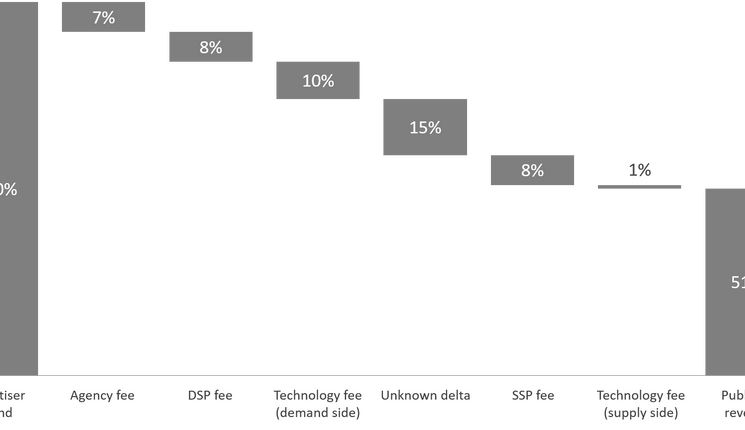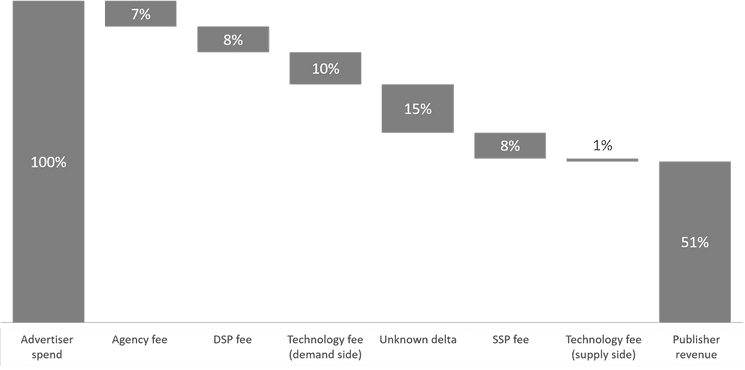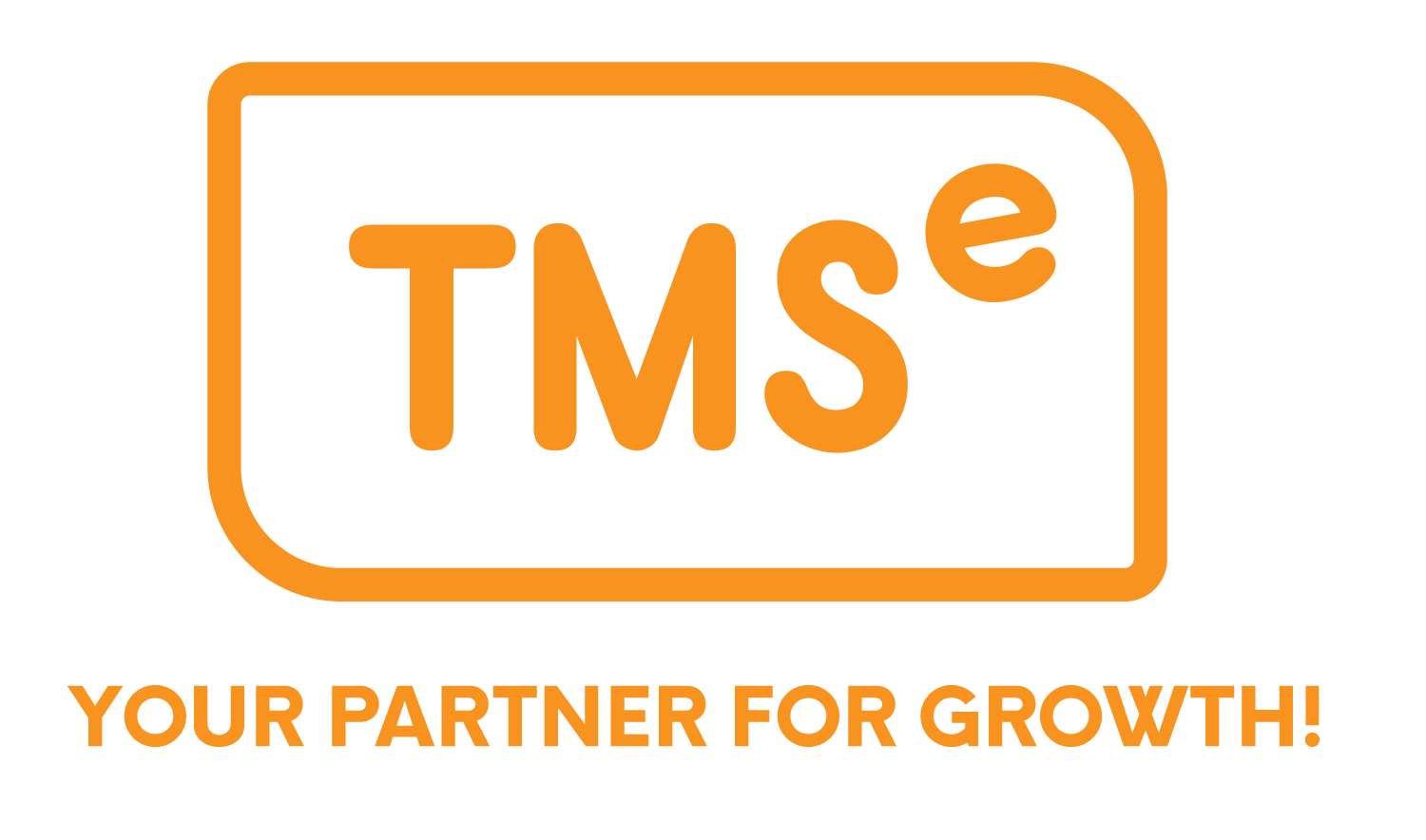
How Agencies can Use Adnuntius Marketplace
Adnuntius lets buyers and sellers enter a programmatic private marketplace and reduce by 80% while enjoying 100% transparency across the value chain. The importance of cost efficiency and transparency has increased greatly ever since a report showed how half of advertisers’ spending go to other things than media buying while 15% of the money disappears without anyone being able to account for it.

Distribution across the programmatic value chain (ISBA).
We know however, that most agencies already use multiple systems (DSPs, ad servers and marketplaces) in order to run campaigns, and another system adds to the complexity of the total tech stack. Here is a couple of tips on how to think about Adnuntius Marketplace, and when to use it.
Prove Publishers with a DSP, Then Use with Proven Publishers
The trend has started where an increasing number of agencies are creating their own marketplaces and approaching publishers to connect them to traffic. But these actions introduce new internal processes that not all agencies are used to; if you’re using a DSP for instance, you may be more accustomed to just creating deal IDs to already “out of the box” connected publishers, or to even just run open auctions. Building the traffic of a private marketplace may represent something new.
How do you eat an elephant? The answer: one bite at a time. So the journey of building traffic and knowledge, and soon enough competitive advantage, starts with reaching out to a handful of publishers. But who do you start with?
Most agencies have publishing partners where they see the programmatic performance they would like to, whether they measure impressions, click rates, viewability or even conversion rates (although conversions will be increasingly harder to measure due to privacy actions such as blocking 3rd party cookies, clamping down on link decoration etc).
We see that some of our agency partners are approaching the market in a structured way by first identifying top performing publishers. They first run DSP campaigns (or rather rely on historic campaigns) using performance KPIs to identify top performers, and then they start approaching publisher by publisher. This way an agency knows that the effort will be worth it: if future campaigns can be run in Adnuntius Marketplace and bring 80% cost reduction and 100% transparency, then there is no question whether it will be worth a bit of work making sure that the publisher commits to a new trading channel.
And publishers smile too when they see that more money is being paid as the number of expensive intermediaries are replaced by one: Adnuntius.
Create Your Campaign Manager or Integrate
Proving which publishers to work with answers the question of how Adnuntius Marketplace can play a role in an agency’s total tech stack. However, it still represents another system on top of everything else. Well, not necessarily; there are two things an agency can do with Adnuntius in order to reduce complexity.
The first is to integrate. Let’s say that an agency uses an ad server such as Google’s Campaign Manager or similar. Adnuntius comes with a fully capable API which makes it easy to integrate so that you can keep using, in this example Campaign Manager, but still book campaigns in Adnuntius Marketplace programmatically.
The second alternative is to use Adnuntius Marketplace as your campaign manager: Adnuntius is a fully capable ad server that can be used to produce third party codes, and can be integrated to external systems as well. This means that if you are considering an ad server to manage your campaigns, Adnuntius may just be an alternative you should look into.
Don’t Be a Stranger
Want to learn more? Drop a line to stian@adnuntius.com at any time.




